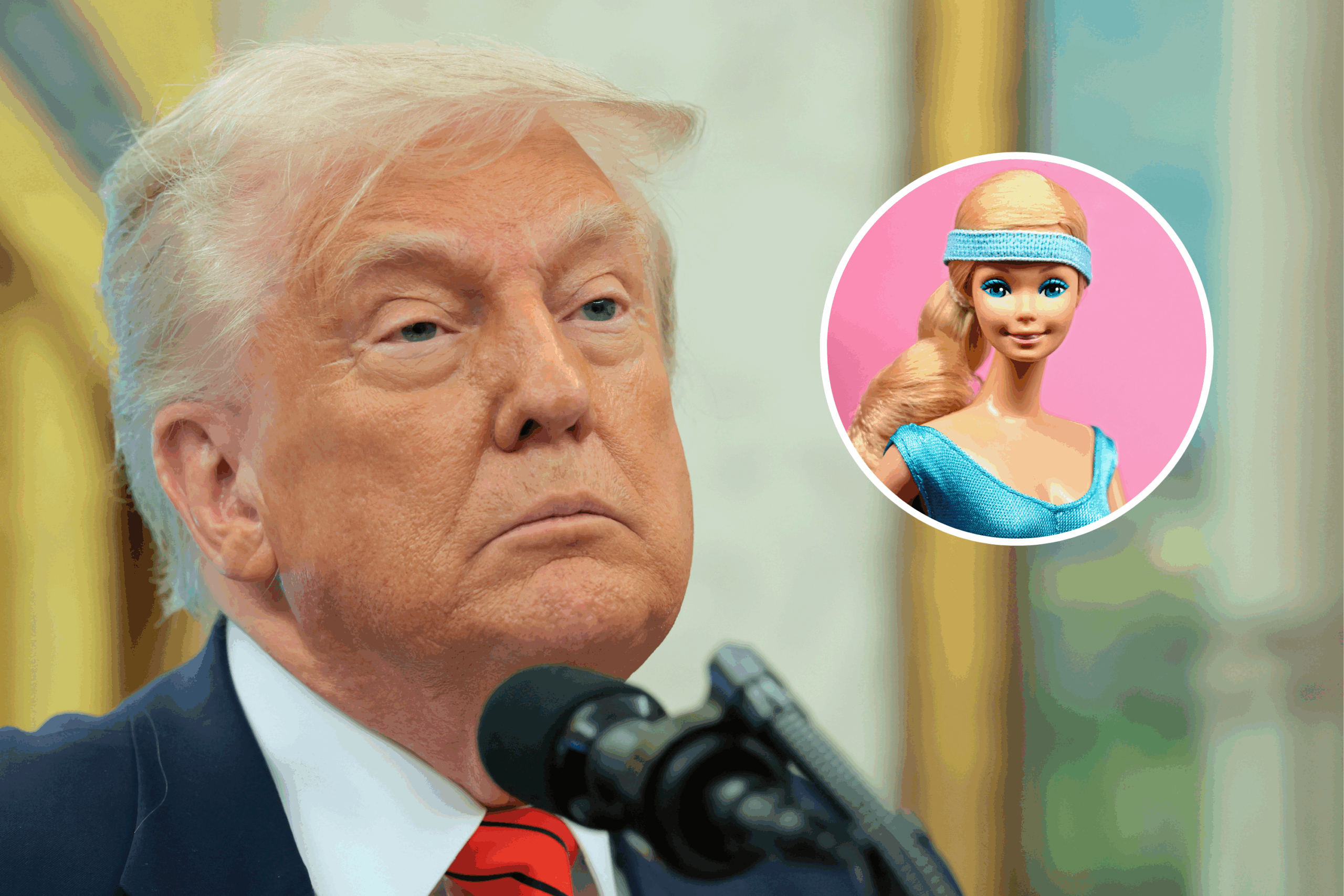
Footage of a girl asking then former-President Donald Trump to bring down the price of her favorite dolls has resurfaced, drawing ironic attention given his recent comments about dolls and Barbie maker Mattel’s tariff-driven decision to raise its prices.
At a campaign event for Trump in Michigan last September, an MSNBC reporter asked two girls, both clad in “Trump 2024” and MAGA apparel, what they would like the Republican nominee to do if he won back the presidency.
“I want him to lower prices and lower the taxes,” one responded, with her friend interjecting: “Make Barbies cheaper.”
“All my favorite toys are so expensive,” she added.
Why It Matters
The toy industry is expected to be one of the hardest hit by the 145-percent tariffs on China, given its reliance on the country’s exports. Several household-name toy companies have made the decision to raise their prices to absorb the new import taxes, with others issuing warnings that some toys may be absent from the shelves come holiday season.
Despite these warnings, and representatives of the industry lobbying for a tariff exemption, the administration has largely downplayed the issue as insignificant in the context of its broader economic goals. Trump and his cabinet have argued that temporary price hikes are a reasonable trade-off for future economic stability, and that American children can manage with fewer toys.
What To Know
The video was shared on X by Australian economist Justin Wolfers. Several commenters highlighted the irony, given dolls’ recent emergence as a flashpoint in debates over tariffs and trade policy, and the toymaker’s recent decision to raise its prices.
Others were less sympathetic. “Those girls only need two dolls,” one wrote, echoing the sentiment expressed by Trump last week.
At an April 30 cabinet meeting, the president acknowledged that the tariffs on China and the resultant decline in imports could mean fewer toys on store shelves.
“You know, somebody said, ‘Oh, the shelves are going to be open,'” Trump said. “Well, maybe the children will have two dolls instead of 30 dolls, you know? And maybe the two dolls will cost a couple of bucks more than they would normally.”
Following criticism, Trump defended his remarks in a May 5 interview on Meet the Press, and later aboard Air Force One, where he told reporters: “All I’m saying is that a young lady—a 10-year-old girl, 9-year-old girl, 15-year-old girl—doesn’t need 37 dolls.”
Earlier this week, Barbie maker Mattel said it would be taking “pricing action” in its U.S. business, citing “changes in global trade policy and U.S. tariffs” in the announcement.
Anna Moneymaker / Gabriel Bouys/Getty Images / AFP via Getty Images
What People Are Saying
President Donald Trump, during his Meet the Press interview, said: “I don’t think that a beautiful baby girl needs—that’s 11 years old—needs to have 30 dolls. I think they can have three dolls or four dolls because what we were doing with China was just unbelievable. We had a trade deficit of hundreds of billions of dollars with China.”
Treasury Secretary Scott Bessent said he would tell those children anxious about receiving fewer dolls for Christmas, “that you will have a better life than your parents. That you and your family, thanks to President Trump, can now be confident again that you will have a better life than your parents. Working-class Americans had abandoned that idea.”
White House Senior Adviser Stephen Miller defended Trump’s doll comments in a recent press briefing, saying: ” He was making the point that I think almost every American consumer agrees with. If they had a choice…between a doll from China that might have, say, lead paint in it, that is not as well constructed as a doll made in America that has a higher environmental and regulatory standard, and that is made to a higher degree of quality, and those two products are both on Amazon, that, yes, you probably would be willing to pay more for a better-made American product.”
Mattel CEO Ynon Kreiz, during the company’s Q1 earnings call, said that tariffs and “global trade uncertainty” had forced the company to take “mitigating actions,” including accelerating the diversification of its supply chain, reducing the reliance on Chinese imports as well as price increases for American customers.
“Taking pricing action in our U.S. business where necessary will be done in close collaboration with our retail partners while always keeping the consumer in mind to ensure we offer the right balance of price and value and maintain high quality standards,” he said. “Under the current scenarios we are considering, we expect that 40 percent to 50 percent of our product will be priced at $20 or less.”
What Happens Next?
Bessent and U.S. Trade Representative Jamieson Greer are set to meet with their Chinese counterparts on Saturday in Geneva, Switzerland to discuss trade and the tariffs.
